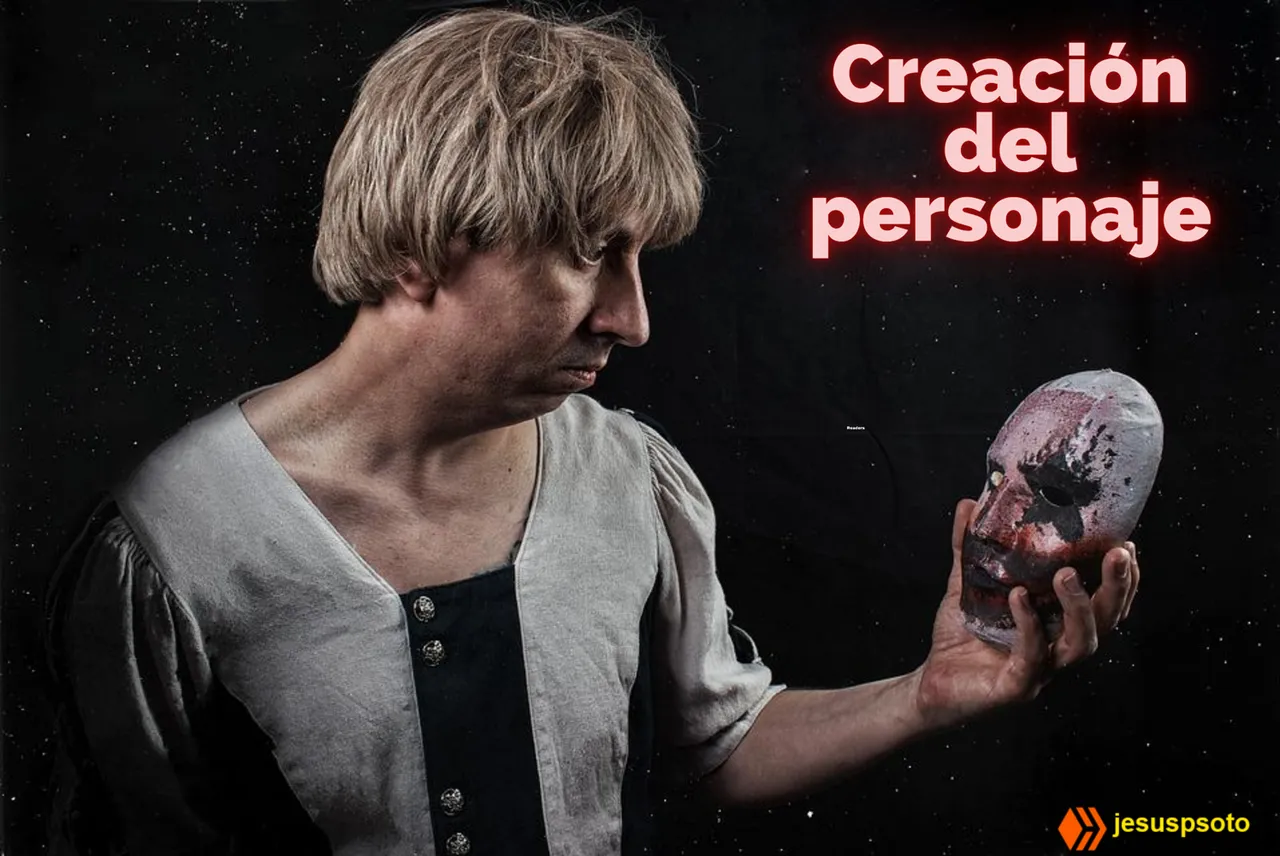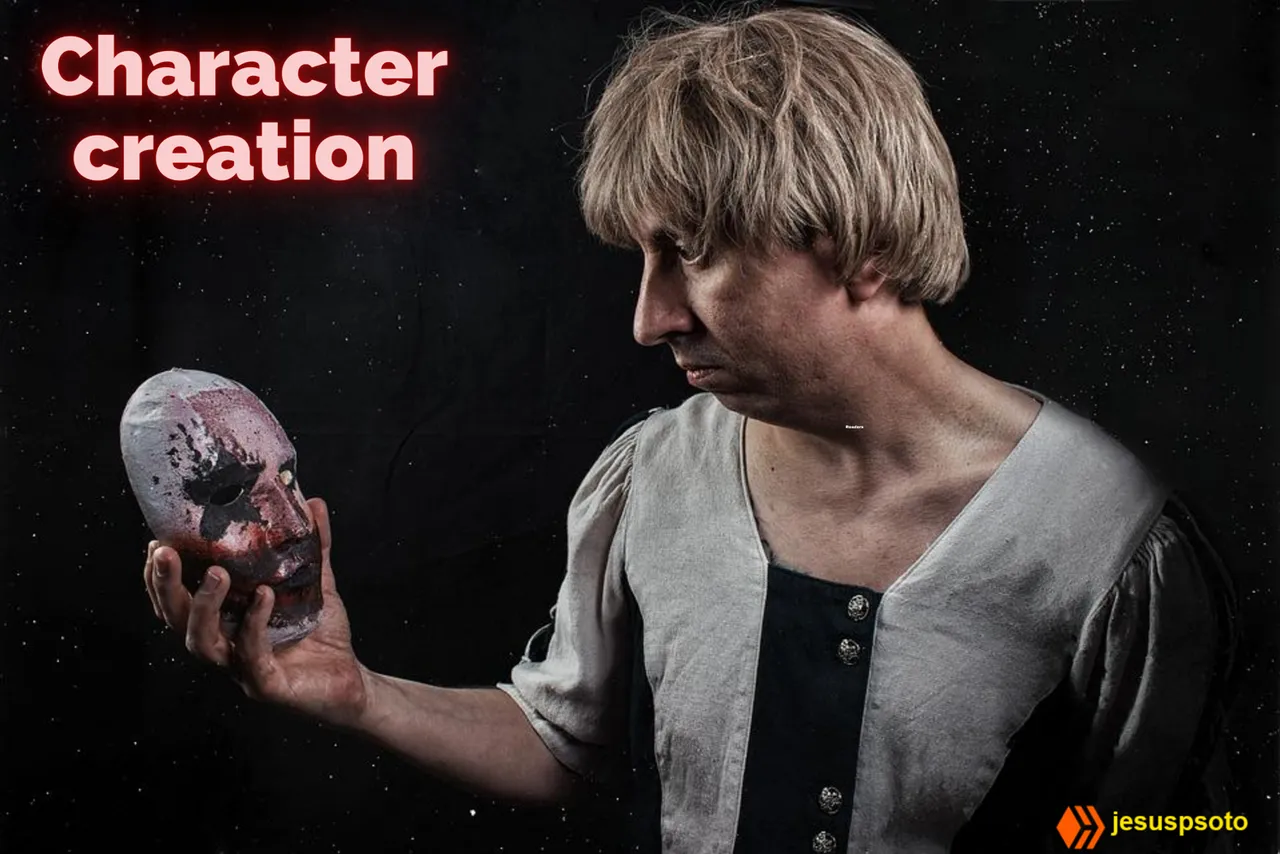
Cuando Aristóteles nos habla en su Poética, de la verosimilitud, es para referirse a que toda historia tiene que sucederle a alguien, en algún lugar y en algún tiempo determinado. El tiempo, ya lo sabemos: pasado, presente o futuro; incluso se combinan o puede ser uno inventado; un tiempo que le diga al lector en dónde está sucediendo todo, para que empiece a creerse lo que está leyendo.
Lo mismo con el lugar. «¿Dónde carrizo está sucediendo esto?», se pregunta el subconsciente y empieza a pedir conscientemente esa información. Si la historia no ocurre en un lugar de la mancha, debe suceder en un sitio, real o imaginario, cercano o en el ultramundo, pero tenemos que ubicar al lector para que no se pierda nuestras historias.
En cuanto al personaje, su explicación no se agota en unos cuantos párrafos, de modo que quedarán muchas preguntas, pero como dice mi madre, el que quiere comer que busque el plato; que es algo así como, el que quiere saber, pregunte.
El personaje es el ente que le da cuerpo a la historia. Si una comadre llega y le dice a otra, «Ya te enteraste de lo que le sucedió a fulanita»; obvio que esa ‘fulanita’ será la víctima en la que descargarán las comadres la sarta de comentarios; será el personaje a quien le tronarán las orejas; porque en la realidad como en la ficción a alguien le suceden las cosas, de alguien se habla, sin ese personaje no puede haber chiste, anécdota o historia.
Este alguien o personaje, no necesariamente tiene que ser un ser humano. Bien puede ser un animal, un objeto, una abstracción, un vivo o un muerto; pero para transformarlo en personaje debe ejecutar, de manera consciente, acciones determinadas y para esto hay que dotarlo de características humanas. El escritor le da a sus personajes, psicología, los dota de conciencia para que sean creíbles, para que puedan reír o llorar, angustiarse o tener ambiciones; para que se parezcan a nosotros y al parecerse nos podamos identificar con ellos.
Los personajes son diferentes según la historia, de ahí la responsabilidad del escritor de darle sus propias caracterizaciones; a algunos los tendrá que sazonar con más psicología que otros, pero eso dependerá de la importancia que cada personaje tenga en la historia y por la longitud del texto.
Es importante para el escritor saber qué acciones realizarán sus personajes, qué peso tendrá cada uno en la historia y no menos importante, tener una idea de las relaciones entre el personaje principal y los demás, esto con la finalidad de tejer bien el argumento, la trama, las posibilidades de cada quién y también porque al saber esto puede ir añadiendo o eliminando ciertas características psicológicas del personaje.
El nombre del personaje también es importante; no todos tienen porque tener un nombre, ni siquiera es imprescindible que el personaje principal tenga un nombre; pero es necesario que el lector sepa cómo llamarlo, es imprescindible una denominación; por ejemplo, el papá, la señora, el rompehuesos, estas definiciones modernas atienden a la actividad del personaje dentro de la obra y son muy usadas.
Para finalizar, redondearé la idea de la verosimilitud agregando que es necesario aclarar que las acciones que ejecuta el o los personajes, así como lo que les sucede, debe ser creíble; por lo tanto hay que evitar las improvisaciones para que el lector no diga, «Oye, de dónde salió este tío», «cómo es que el personaje terminó así, volando»; esas sorpresas, extrañas, para el lector son las que lo llevan a decir, «este escritor cree que soy idiota, resolvió eso así, tan improvisado». La narratividad literaria debe obedecer a una razón aunque el relato sea fantástico, absurdo, surrealista o como quieran llamarlo. Ahí no vemos.

When Aristotle talks about verisimilitude in his Poetics, he means that every story has to happen to someone, somewhere and at a certain time. The time, we already know: past, present or future; they can even be combined or invented; a time that tells the reader where everything is happening, so that he begins to believe what he is reading.
The same with the place. "Where the heck is this happening?" the subconscious wonders and begins to consciously ask for that information. If the story doesn't happen in a spotty place, it must happen somewhere, real or imaginary, nearby or in the afterworld, but we have to locate the reader so that he doesn't miss our stories.
As for the character, his explanation is not exhausted in a few paragraphs, so that many questions will remain, but as my mother says, he who wants to eat, let him look for the plate; which is something like, he who wants to know, ask.
The character is the entity that gives body to the story. If a comadre arrives and says to another one, "You heard about what happened to so-and-so"; obviously that 'so-and-so' will be the victim on whom the comadres will unload their string of comments; it will be the character whose ears they will thunder; because in reality as in fiction, things happen to someone, someone is talked about, without that character there can be no joke, anecdote or story.
This someone or character does not necessarily have to be a human being. It can be an animal, an object, an abstraction, a living or a dead person; but to transform it into a character it must perform, in a conscious way, certain actions and for this it must be endowed with human characteristics. The writer gives his characters psychology, he endows them with conscience so that they are credible, so that they can laugh or cry, be anguished or have ambitions; so that they resemble us and by resembling us we can identify with them.
The characters are different according to the story, hence the responsibility of the writer to give them their own characterizations; some will have to be seasoned with more psychology than others, but that will depend on the importance that each character has in the story and the length of the text.
It is important for the writer to know what actions his characters will perform, what weight each one will have in the story and not less important, to have an idea of the relationships between the main character and the others, this in order to weave the plot, the plot, the possibilities of each one and also because knowing this he can add or eliminate certain psychological characteristics of the character.
The name of the character is also important; not everyone has to have a name, it is not even essential that the main character has a name; but it is necessary that the reader knows how to call him/her, it is essential to have a name; for example, the father, the lady, the bone breaker, these modern definitions attend to the activity of the character within the work and are widely used.
Finally, I will round up the idea of verisimilitude by adding that it is necessary to clarify that the actions performed by the character or characters, as well as what happens to them, must be credible; therefore, improvisations must be avoided so the reader does not say, "Hey, where did this guy come from", "how did the character end up like that, flying"; those surprises, strange, for the reader are the ones that lead him to say, "this writer thinks I am an idiot, he solved that so, so improvised". Literary narrative must obey a reason even if the story is fantastic, absurd, surreal or whatever you want to call it. There we do not see.


Portada hecha en Canva con imagen de Pixabay
Cover made in Canva with image from Pixabay
